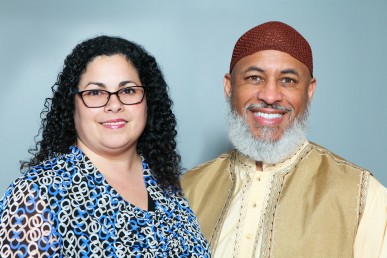Urban Youth Trauma Center to expand training, services under new grant
The University of Illinois at Chicago’s Urban Youth Trauma Center has received a five-year, $3 million grant from the Substance Abuse and Mental Health Services Administration to provide training and support services to individuals and organizations that serve youth and families who have experienced psychological trauma and community violence in low-income urban neighborhoods.
The center, housed in UIC’s Institute for Juvenile Research, has been continuously funded by SAMHSA with additional state and foundation support since its 2009 founding. The new funding will support the center’s Project TRIUMPH (Trauma Resiliency through Integrated Urban Models: Partnerships for Hope) whose mission is to improve evidence-based resources for youth and families who have been affected by trauma in local and national underserved areas.
The grant will help TRIUMPH provide training for agencies and community members serving racial, ethnic, linguistic, immigrant and Muslim minorities using select rap music and hip-hop culture to engage contemporary youths.
“The Urban Youth Trauma Center helps provide a framework for helping people understand the needs of youth affected by trauma, most often in the form of violence in their communities, although trauma can also occur from neglect or sexual abuse,” says Liza Suarez, assistant professor of clinical psychology in psychiatry in the UIC College of Medicine and co-director of the center.
According to the National Child Traumatic Stress Network, youth who have experienced trauma are more vulnerable to stress and are more likely to have trouble controlling and expressing emotions. They may react violently or inappropriately to situations and often have difficulty identifying, expressing and managing emotions. They often internalize or externalize stress reactions and may experience depression, anxiety or anger. They are at higher risk for delinquency, incarceration, substance abuse and suicide. Problems often develop when early support and resources are not available.
“Because violence is learned, children affected by violence mimic what they see,” said Jaleel Abdul-Adil, associate professor of clinical psychology in psychiatry and co-director of the center. Violent behaviors arise, he said, when youth are exposed to community violence in their day-to-day life “where aggression is learned, and retaliation is rewarded.”
“People that work with these youths need to understand that the way to treat those behaviors is not through punishment, but by asking, ‘what happened to that child to make them behave that way?’ and then helping them process their emotions,” he said. “Providers need to address the experiences these youths have had that led them to the behavior they’re exhibiting or they’re not going to get to the real issue and, ultimately, a real solution.”
When a child is exposed to neighborhoods with high rates of crime and violence, they exist in a constant state of threat and stress, Abdul-Adil said.
“They may not be eating or sleeping properly, they may be bombarded with negative thoughts and fears and anger, and that may be long-term, because you can’t stop thinking about what happened or what could happen to you,” he said. “This has a significant impact on a child’s behavior, which can be disruptive or even violent, or the child can withdraw. Substance abuse is also very common. Consequently, it’s very important to approach that child through what we call the ‘trauma-lens’ of healing, instead of simply punishing the child for how they are acting out.”
The center works in partnership with organizations and individuals in some of Chicago’s most violent neighborhoods, including Englewood, Auburn-Gresham and Austin. The center will serve an estimated 8,000 people from youth-serving systems and serve 6,500 youth and families over the next five years under the new grant.
“These are neighborhoods with very few, if any, mental and behavioral health services resources,” said Suarez. “Our evidence-based programs help local organizations gain competency in supporting trauma-affected youth so that they can help fill these health services gaps right in the neighborhoods where they work and reach those that need help the most.”
The center also uses “train-the-trainer” techniques to extend its reach.
“When we go out into the community, what we mostly see is strength and positivity,” Abdul-Adil said. “These organizations and individuals really have the creativity and ability to respond to the disproportionate numbers of trauma-affected youth they see, but they look to us to help them see what’s happening to their communities and youths through the trauma lens.”

